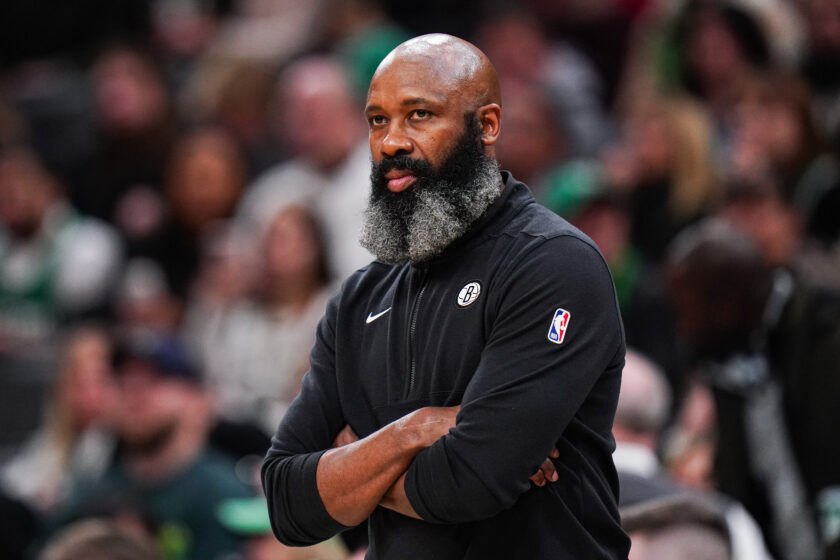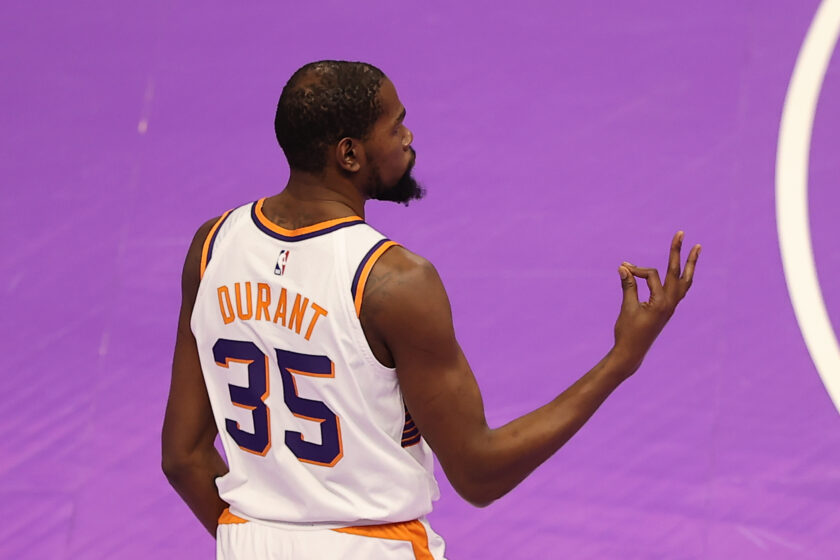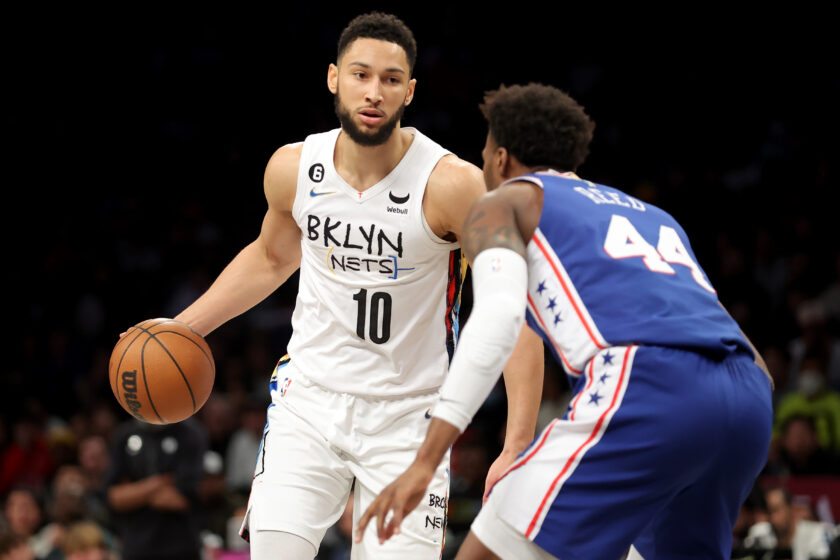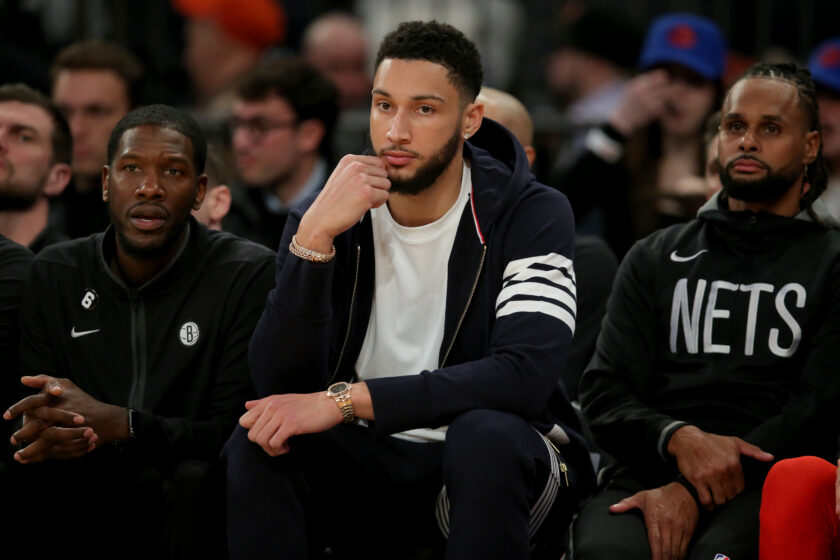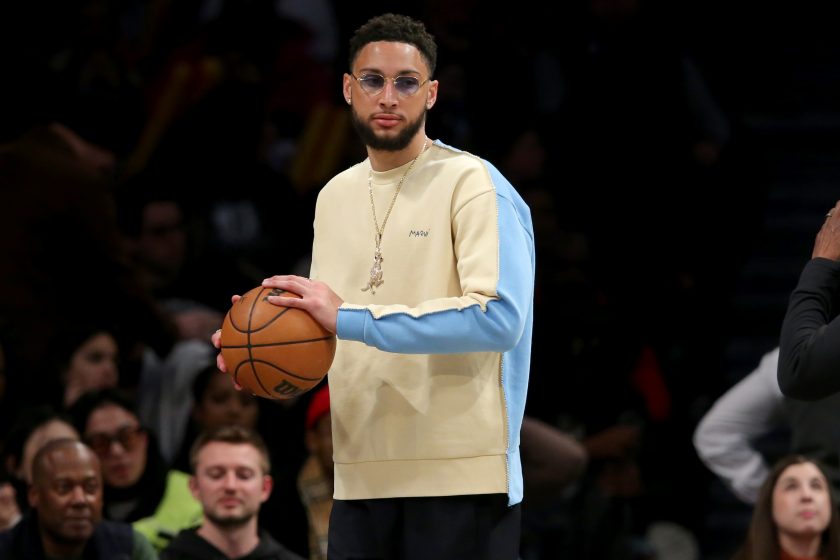How Brooklyn Nets’ Caris LeVert Can Avoid a Sophomore Slump
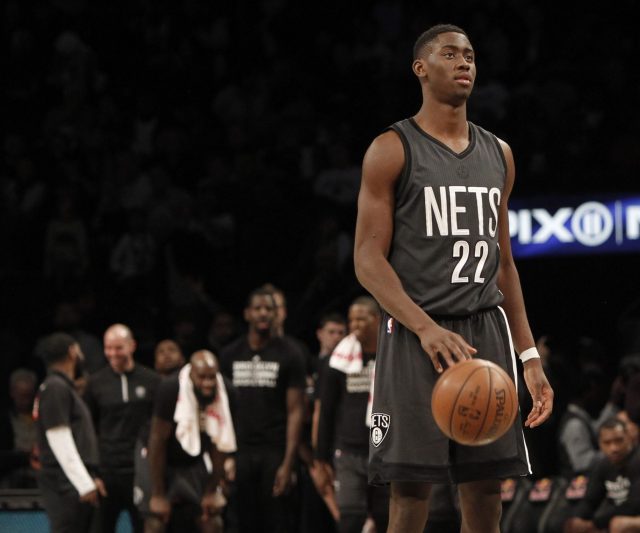
Rookie Caris LeVert was a pleasant surprise for the Brooklyn Nets, and entering year two fully healthy could lead to great things.
[dropcap]O[/dropcap]ne of Sean Marks’ first moves as GM was trading Thaddeus Young to the Indiana Pacers and getting their first-round pick in return. At 20th overall, the Nets plucked University of Michigan standout Caris LeVert, and it was a gutsy move because he dealt with various injuries as an upperclassman. Still, the potential was too great to ignore. His 6-7 frame allows him to transition between shooting guard and small forward seamlessly, and his athleticism means he can defend both spots efficiently.In addition to that, he has the length to be bothersome on the defensive end and the guard skills to be a do-it-all swingman. The anticipation of his debut was building up for the first month of the season, and his showing on Dec. 7 was quite impressive: four rebounds, three steals, plus-two in nine minutes. It wasn’t much, but he didn’t look like he was never injured.
[sc name=”Nets Link Related” link=”elitesportsny.com/2017/05/09/brooklyn-nets-looking-kentucky-freshman-hamidou-diallo/” text=”Nets Interested in Hamidou Diallo?” ]By the end of the year, LeVert’s minutes had gradually increased, and he suited up for 57 of the 62 remaining games. He posted 8.2 points, 3.3 rebounds and 1.9 assists in 21.7 minutes of action, and the jump from college defense to NBA defense wasn’t too jarring for him. Overall, he shot 45 percent from the field. However, LeVert’s jumper didn’t translate, and the 32.1 percent from three is nothing like he shot as a Wolverine. Regardless, he was one of the most efficient players in the class.
Of the nine rookies to attempted 250 field goals this season, LeVert ranked third in true shooting percentage with a clip of 52.8. Alex Abrines and Willy Hernangomez are the only two ahead of him, and Rookie of the Year candidates Malcolm Brogdon (fifth, 51.8) and Joel Embiid (sixth, 50.8) finished below him. I want to see his range improve in year two. It’ll make him a much tougher guard because defenders can take away his driving lanes, and LeVert’s slashing ability is his foundation as a scorer. He was nearly automatic (by rookie standards) inside of the restricted area; when compared to the NBA as a whole, he was average — which is still great for a first-year player who came off foot surgery.[sc name=”Nets Center Right” ]
LeVert converted on 65.8 percent of his 117 looks inside the restricted area, according to NBA.com. Among rookies with at least 100 shots inside that zone, he was second to the Heat’s Rodney McGruder. His in-between game (inside the paint but outside the restricted area) dropped off to 40 percent, but that’s still modest. I don’t think it’ll be an issue for him to shoot around 38 percent because he was money on midrange shots (48.7 percent) and long twos, and this year was him getting acquainted with the NBA’s three-point line.
If LeVert continues to struggle from long range, it’s not the end of the world. He can score in other ways, but he can also make an impact in other parts of the box score. In today’s NBA, versatility is everything. Guys at all positions are scoring, grabbing rebounds and dishing out assists, and LeVert is likely to be the Nets’ swiss army knife. He rebounds at a high rate already, which is going to be a necessity when Brooklyn goes small. At 3.3 boards a night, LeVert’s less than ideal but it’s important to remember that Kenny Atkinson kept his minutes low. Per 36 minutes, 3.3 turns into 5.5, which isn’t too shabby for a 6-7 wing.
His offense is slowly improving and will continue to do just that. The Nets don’t need to rush LeVert on that end because they already have some nice pieces in place, and that means he won’t have to neglect his defense. Brooklyn last season was terrible at stopping opponents. Not just one aspect, either — the entire thing was bad. It’s going to take some time to fix that, and LeVert can be an excellent start. In conjunction with Rondae Hollis-Jefferson, the Nets have two wings who can lock up on the perimeter, and LeVert showed impressive agility and lateral movement during his rookie campaign.
The aggressiveness was there, and he demonstrated a consistent ability to stay in front of almost anybody.
[sc name=”The Basketball Network” ]LeVert had 49 steals in 57 games and a defensive box plus/minus of minus-0.4. Still, the Nets were slightly better with him on the floor and allowed 109.9 points per 100, and it rose to 111.3 with him off. The biggest adjustment for him on the defensive end is just learning the schemes inside and out. He was serviceable on raw ability, but the truly elite defenders have the cerebral part of the game at an even higher level.
Given the low expectations, LeVert played remarkably well as a rookie. If he had been healthy for longer, I’m sure he would’ve found his way into the Rookie of the Year conversation. Regardless, he set the foundation, and year two looks promising. With that said, nobody should expect Caris LeVert to come out and average 20-6-6 next year. That’s irrational. Adding just two points, two rebounds and one assist would be huge since a slight improvement is still an improvement. Luckily, he’s in a position where the ball is going to be in his hands a decent amount, and that equates to plenty of opportunities to make plays.
[sc name=”Nets Link Next” link=”elitesportsny.com/2017/05/16/nba-draft-lottery-knicks-nets-need-hit-wont/” text=”Revisiting Billy King’s Terrible Trade” ] [graphiq id=”1ThHXMPxZAh” title=”Caris LeVert Profile” width=”600″ height=”628″ url=”https://sw.graphiq.com/w/1ThHXMPxZAh” frozen=”true”]I'm obsessed with basketball. I play (my hesi pull-up Jimbo is cash), I write and cover the Nets here at ESNY. My work has been seen on Bleacher Report, Sports Illustrated and FanSided. I also run my company, TBN Media. My favorite NBA player is Isaiah Thomas because I can look him in the eye.

